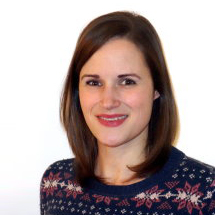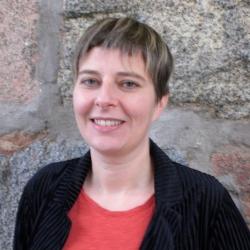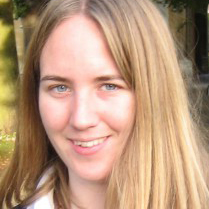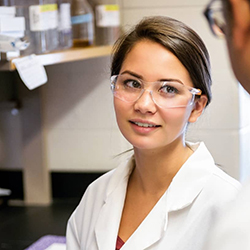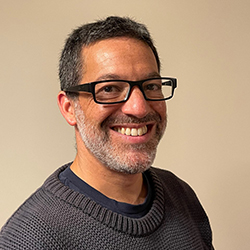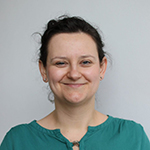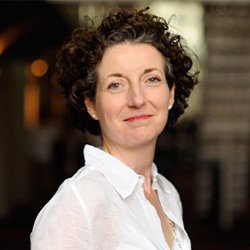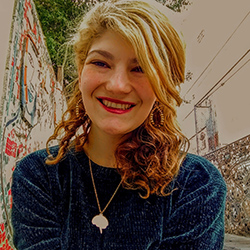COVID-19 vaccination, fertility and pregnancy
Dr Viki Male (Imperial College London)
The first round of clinical trials of the COVID-19 vaccines did not formally examine effects on the menstrual cycle, female fertility or vaccine safety and efficacy during pregnancy. In combination with a campaign of misinformation that claimed the vaccine will harm fertility and pregnancy, this left many people who are pregnant or planning a pregnancy hesitant to accept the vaccine. However, ten months into the vaccination campaign, we now have real-world data from hundreds of thousands of people vaccinated in pregnancy and periconceptually that can help inform decisions. In this talk, we will briefly explore these datasets.
Viki Male is Lecturer in Reproductive Immunology based in the Department of Metabolism, Digestion and Reproduction at Imperial College London. Using clinical samples and a novel mouse model, her research group is investigating how innate lymphoid cells in the uterus work to establish and maintain pregnancy, and how this may fail in disorders of pregnancy such as pre-eclampsia and pre-term birth.
Changes in frequency and patterns of marital sexual activity during COVID-19: evidence from longitudinal data prior to, during and after lockdown in Singapore
Dr Poh Lin Tan (National University of Singapore)
The literature suggests that the pandemic has affected sexual activity and sexual desire around the world, potentially due to increased levels of stress, movement restrictions under lockdown conditions, and changes in relationship quality. This longitudinal study followed 409 heterosexual married female participants who completed a baseline survey in April-July 2018 and biweekly online surveys over the next 14 weeks; an online survey in May 2020 during the lockdown in Singapore; and an online survey in June 2020 after the lockdown was lifted. Compared to pre-pandemic levels, the proportion of participants not having marital sex within a week remained stable while weekly sexual frequency increased, with more evenly distributed sexual activity on weekdays and weekends. Stress, fatigue and marital satisfaction levels predicted probability of non-activity and sexual frequency. The decline in marital sexual non-activity and increase in weekly sexual frequency have implications for sexual and reproductive health, including sexual satisfaction and prevalence of infertility and low birth weight associated with waiting time to pregnancy.
Poh Lin Tan is Assistant Professor at the Lee Kuan Yew School of Public Policy, National University of Singapore. Her research focuses on causes behind the crisis of Singapore’s extremely low fertility rate, the effects of national health crises on family dynamics and fertility, and the tension between fertility and human capital accumulation.
Challenges of queer and trans reproduction with ART during Covid-19
Dr Doris Leibetseder (Reproductive Sociology Research Group/University of Vienna)
Recent research on ART centres on the emerging understanding that a multiplicity of relationships, kinship and family structures, as well as diverse genders and sexualities, are increasingly formally recognized (Thompson 2015) and make use of ARTs (Dahl 2014). One social group particularly affected by ART frameworks are queer and transgender people. During COVID-19, challenges and obstacles in reproduction for queer and trans people seem to have been intensified. The pandemic led to drastic national measures, borders were closed and ART treatments were put on hold in many states. Meanwhile, LGBTIQ people became reluctant to seek health care due to the pandemic and therefore the numbers of them accessing reproductive health care dropped. Thus, research on whose reproduction is affected and how, and how they are dealing with these challenges is needed to prevent their further exclusion from reproduction.
Doris Leibetseder is a Senior Research Fellow at the University of Vienna and Lecturer in Gender Studies at several universities in Austria. She is currently a Visiting Scholar at the Reproductive Sociology Research Group (ReproSoc), University of Cambridge.
Demand for self-managed online telemedicine abortion in eight European countries during the COVID-19 pandemic
Dr Catherine Aiken (Obstetrics & Gynaecology)
[abstract to follow]
Catherine Aiken is an Academic Clinical Lecturer in the Department of Obstetrics & Gynaecology, University of Cambridge.
Expression of key factors and susceptibility to SARS-COV-2 in the pre-gastrulation human embryo
Bailey Weatherbee (Physiology, Development & Neuroscience)
One week after fertilization, the human embryo implants into the maternal uterus marking the first interaction between maternal tissues and the extra-embryonic trophoblast, which will give rise to the embryonic portion of the placenta. Implantation is a delicate process, with up to 60% of pregnancies failing during the first two weeks post-fertilization. The possibility of transmission of COVID-19 to the developing embryo during these peri-conception stages is not well understood. Reanalysis of single-cell RNA-sequencing data suggests that key mediators of SARS-COV2 viral entry are expressed in the blastocyst trophectoderm – which mediates implantation – and post-implantation syncytiotrophoblast – which will interact with the maternal blood supply. This raises the possibility of transmission at these stages of development and points to the importance of further studies to elucidate the potential risks of SARS-COV2 infection in relation to early pregnancy loss.
Bailey Weatherbee is a PhD student in the laboratory of Professor Magdalena Zernicka-Goetz, where her work focuses on early post-implantation stages in human embryos.
COVID-19: should the foetus be worried?
Dr Topun Austin (Paediatrics, CUH)
Historically pregnant women and their unborn baby have been amongst those with the poorest outcomes in previous epidemics, most notably the Zika virus. For much of 2020, with the emergence of the novel coronavirus, the effect on the fetus remains unclear. While initial reports suggest that vertical transmission with SARS -CoV2 is reassuringly rare, the complex socioeconomic, domestic and broader maternal lifestyle factors which can influence a child’s lifelong well-being have been modulated during the experience of this pandemic. The developing brain is particularly susceptible to maternal stress, resulting in permanent structural changes and increased incidence of behavioural and mental health illness later in childhood. A large international longitudinal survey is being undertaken by the Department of Psychology to better understand the impact of the pandemic on those yet to be born.
Topun Austin is a Consultant Neonatologist in Cambridge, and Honorary Professor of Neurophotonics at University College London. He is the Director of the Evelyn Perinatal Imaging Centre (EPIC), based at the Rosie Hospital, Cambridge, and the co-director of neoLAB, which is a collaborative group between EPIC and Biomedical Optics Laboratory at UCL.
“What good looks like” for remote antenatal care: learning from the COVID-19 pandemic
Dr Karolina Kuberska and Dr Lisa Hinton (THIS Institute)
The goal of the CORONET study is to investigate the experiences of remote antenatal care in the UK from a range of perspectives: those who received their antenatal care remotely, maternity staff as well as managers and systems-level stakeholders, who had the responsibility of reorganising care pathways in the uncertainty of the pandemic. We seek to investigate what aspects of remote care work well (and for whom), which aspects work less well (and for whom), and identify enduring learning. Our findings show that while remote technologies may offer new avenues for accessing and delivering antenatal care, they also create areas of exclusion, often for those groups for whom antenatal care is already worse than for an average pregnant person. We offer evidence for policy and practice to guide thinking about remote provision in post-pandemic antenatal care pathways.
Karolina Kuberska is a medical anthropologist at The Healthcare Improvement Studies Institute (THIS Institute) specialising in understandings of health and well-being. The core of her research interests and expertise falls within the scope of medical anthropology, with a specific focus on understandings of health, wellbeing, and healthcare.
Lisa Hinton is a senior social scientist at THIS Institute (for healthcare improvement studies) in the Department of Public Health and Primary Care where I lead a programme of work using applied social science research to understand patient and staff experiences and improve care.
Recruiting to a clinical research study during a global pandemic: how the Pregnancy Outcome Prediction Study 2 (POPS2) adapted
Amy Sutton-Cole (Obstetrics & Gynaecology)
The pregnancy Outcome Prediction Study 2 opened to recruitment at the Rosie Hospital on 13th January 2020, just two months before the UK went into the first lockdown to prevent the spread of Covid-19. The study is comprised of a nested randomised controlled trial within a prospective cohort study of nulliparous women with a singleton pregnancy. The aim of which is to determine whether screening using a method tested in the original POPS study for assessing the risk of preeclampsia or fetal growth restriction at term, correctly identifies women at increased risk of complications, and whether induction of labour in those who screen high-risk improves outcomes for mother and infant. With the design of the study combining elements of routine clinical care with trial procedures, completely pausing the study was not an option and adaptations had to be made.
Amy Sutton-Cole is the Lead Research Midwife in the Department of Obstetrics and Gynaecology and study coordinator for the Pregnancy Outcome Prediction Study 2 (POPS2). Amy started work in the department in 2020 having previously worked as a senior research midwife in the NHS, and as the Eastern Regions Champion Research Midwife for the NIHR. Amy received a Chief Midwifery Officer Silver Award in 2020 for her work in reproductive health and childbirth research.
The impact of limited social interactions during COVID-19 on infant sensory processing and self-regulation
Dr Staci Meredith Weiss (Psychology)
In order to reduce the spread of COVD-19 in the UK, in March 2020 new parents and the general population were instructed not to interact with non-household members. Using survey data on infant social exposure collected from diverse expectant and new parents enrolled in the longitudinal COVID in the Context of Pregnancy, Infancy and Parenting (CoCoPIP) Study, we investigate how COVID-19 social restrictions and ‘stay-at-home’ orders affected individual differences in infant sensory perception, self-regulation and sensitivity to social stimuli. We further examine if associations are explained by limited access to a social network impacting infants directly, or indirectly, through pandemic-specific stressors on caregivers. From 1,142 parents with infants aged 0-9 months born during a COVID-related lockdown, we found there was reduced in-person social input from occasional caregivers, alloparental figures including relatives and grandparents, non-sibling children, and healthcare visitors, as compared to infants born prior to the first COVD-19 social restrictions as well as infants born during the summer reopening (July-Oct 2020). Infants born during lockdown 2 (Nov-Dec 2020), lockdown 3 (Jan-May 2021), and other periods of social restriction (Oct 2020, Dec-Jan 2021) were found to have lower detection of sensations (registration) compared to infants born before COVID-19, during the first lockdown (Mar-June 2021), and during the summer reopening. The timing of birth specifically was critical, rather than the infants’ lifetime exposure to lockdowns which was not predictive of altered sensory processing.
Staci Meredith Weiss is a postdoctoral research associate in the PIPkin (Perinatal Imaging Project: in partnership with families) longitudinal study of variability within and between infants in social, sensory and cognitive development. Her interest lies in allostatic adaptation in physiological systems which process social information, as well as the development of the body schema.


